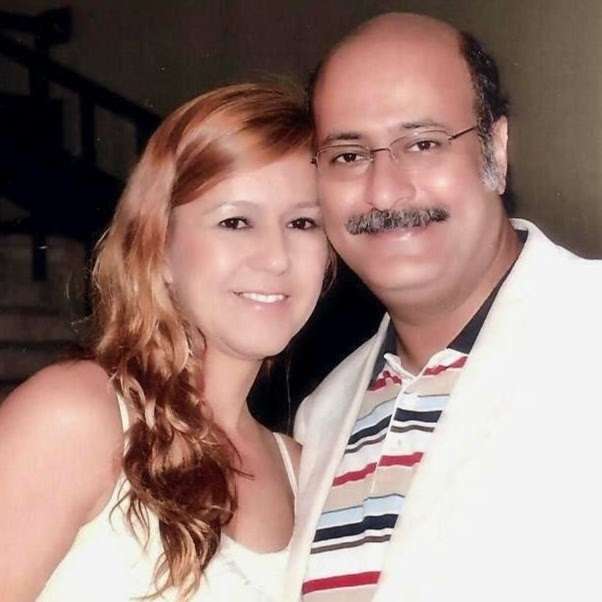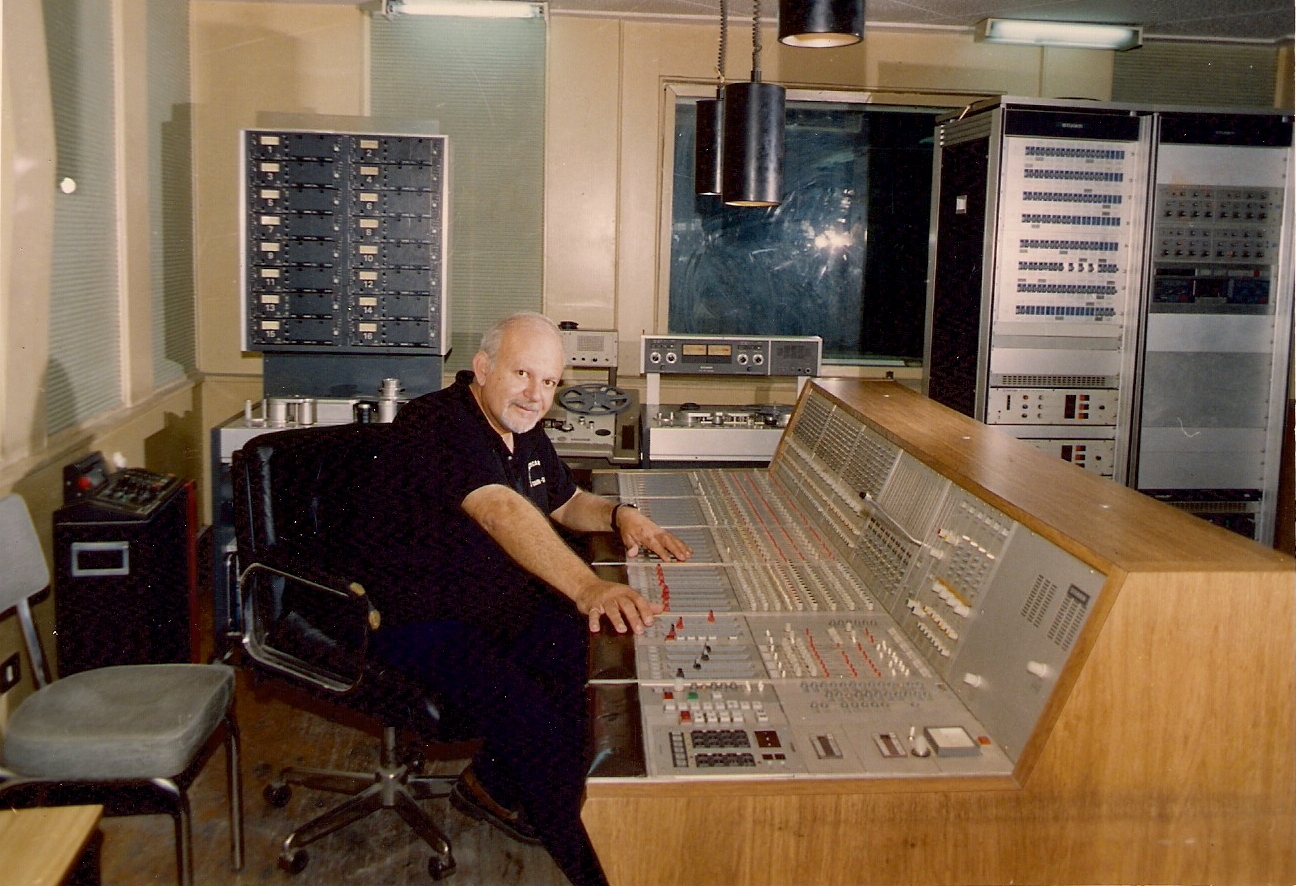By Sherif Awad
Few Egyptians musicians have numerous talents like Tarek Sharara. In addition to his repertoire as a music composer, Sharara wrote and presented radio shows that spread the knowledge about music coming from all over the world. Hi work at the local censorship office did not present him from being appointed for twenty years in the International Music Center at the Cairo Opera House where he supervised many classic and ballet presentation. Sharara received several regional and international awards for his music, his soundtracks and his radio shows. His musical leadership made him frequent jury member in both music and film festivals.
Born in Cairo, Tarek Sharara was one of five brothers in a big family whose origins go back to Turkey (the name Sharara is correctly pronounced Djarara in Turkish language). At a very young age, he was introduced to music at home through his mother who used to play piano and his father, a lawyer by profession, who used to play kanun and oud and who was also a friend of musicians of this era like Zakareya El-Hegawy and Abdel Fatah Mansy. While growing up, the Sharara brothers were also urged by their parents to learn to play different musical instruments as part of their education. Tarek Sharara particularly excelled in playing accordion and piano at his school band that was assembled by music teachers. Although he followed his father’s footsteps by studying at the faculty of law, he continued to play and compose with musical band of the universities. “Once graduated in 1964, I landed a job in the ministry of culture, tourism and information. At that time, the three cabinets used to be all in one ministry headed by Dr. Abdel-Kader Hatem. This job introduced to two entities operating under this ministry: the local censorship and the Radio and TV Building. I became a censorship official in the department of foreign films and presenter in the local European service of Radio Cairo. However, my connection with music did not stop all through the years”, recalls Sharara who was acquainted and collaborated with many creative talents in both the music and film fields since then.
Radio Shows
Sharara used his musical knowledge and film background to create different shows in Radio Cairo. He wrote and presented Around the World where he played modern music coming from different parts of the world in addition to classical concerts coming from different eras. He also created the show Cine Club where he presented soundtracks of recent foreign films accompanied by his technical commentaries about the making of these films. Sharara also expanded his practice into writing narratives and music at the same time. “I also wrote the screenplays and composed the music for a dramatic show called House of Mysteries. In each episode, I used to select suspenseful novels, local and international, and then adapt each one of them into a thrilling 25-minutes act where I invited my colleagues of radio presenters to play different roles”, says Sharara who won several regional and international awards for these shows.
Unconventional Filmmaking
During his work in Radio Cairo, Sharara met someone who shared his love for music and mystery films. He was the late Mohamed Shebl who, in addition to his radio presenting skills, was also a filmmaker specialized in directing horror and paranormal thrillers. Shebl, who studied filmmaking in the States then returned to Egypt in the 1970s, was in love with two things: the British band The Beatles and the infamous musical play The Rocky Horror Picture Show which became a cult film in 1975. “Shebl and I collaborated in adapting and creating an Egyptian version of the Rocky Horror that we called Anyab (Fangs) in 1981. We decided to cast the biggest uprising singer of that moment Ahmad Adaweya in the role of a modern Dracula”, says Sharara. Like its original source, Anyab follows a couple, played by Aly Al-Haggar and Mona Gabr, whose car has a sudden breakdown in a remote place. They are invited inside a house only to discover it is full of strange and corrupted characters who metaphorically suck people’s blood. “When the film was finished, Shebl had to bring it to the censorship for certificate of approval. Because I was still working there , we sat down altogether to watch the film with the other censors. However, I was surprised because I discovered that Shebl changed the screenplay we wrote together using a third credited writer in order to inject many references criticizing the sociopolitical status in Egypt at that time. Elemantary, the censorship trimmed many scenes, which altered the continuity in the film upon its first release. Shebl, who also produced Anyab, was the first to create promotional items like T-shirts and caps for a film in Egypt. However, the film wasn’t a box office hit. Currently, it is rediscovered on Egyptian satellite channels and developed a cult status ”, he says.
Egyptian Soundtracks
Other Egyptian producers asked Sharara to make music adaptation for their new feature films although he was able to compose original scores. “They were always in a hurry to finish their films and, of course, it was cheaper for them instead of hiring someone to compose an original score. This meant I had the task of arranging music from different sources like foreign albums and international soundtracks in order to pick up music pieces that suited each film. It is not an easy task because it needs a great knowledge of music, classic and contemporary. There were great filmmakers who favored music adaptation over composing new musical scores for their films. For instance, the late and great Stanley Kubrick who almost chose and adapted the music for most of his films. Everybody remembers the opening scene of his renowned masterpiece 2001: A Space Odyssey that was accompanied by the rousing music of Richard Strauss”, explains Sharara who also had better opportunities in composing music for Egyptian documentaries and with other established filmmaker like the late Egyptian director Kamal El-Sheikh who was sometimes compared to Alfred Hitchcock for his helming of several thrilling films. Sharara composed the music for several films realized by El- Sheikh like Al-Tawous (The Peacock, 1982) starring Nour El- Sherif and Al-Soud Ela Al-Hawia (Climbing to the Abyss, 1978) starring Madiha Kamel. The latter landed Sharara an award for Best Score in Cairo Festival of this same year.
The craft of soundtracks
The techniques of composing music for films have changed over the last four decades with the rise of electronic instruments near the end of the 1970s. “There are two main types of Electronica”, explains Sharara. “The first type creates sounds that do not exist in real life and the second simulates music instruments like piano and cello. Because assembling an orchestra has become more and more expensive, music composers are currently using electronica in creating film soundtracks. Then, sound engineers can use an additional live instrument when needed in the score. Example, the Irish flute in the Titanic film score”, he explains.
About his own experience in composing music, Sharara feels it is a real personal pleasure that gives self satisfaction to the author whether it is music for a theatrical play or a ballet. “However, when it comes to creating music for a film, it is completely different process”, he says. “The motion picture soundtrack is about bringing additional reshaping to the vision of the director who already shot and edited the film. So one way or the other, images in a film are imposed on the music composer and put some kind of boundaries on the broadness of his creativity. That’s why we notice that some filmmakers are frequently collaborating with the same music composer because they developed mutual understanding over the years. For instance, Maurice Jarre frequently worked with David Lean and now John Williams frequently composed for Steven Spielberg’s films”.

